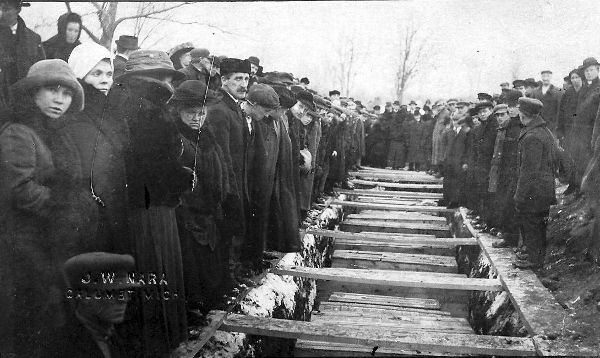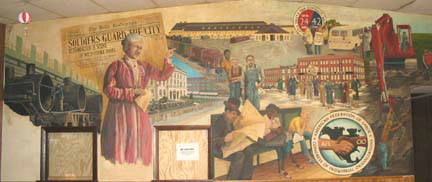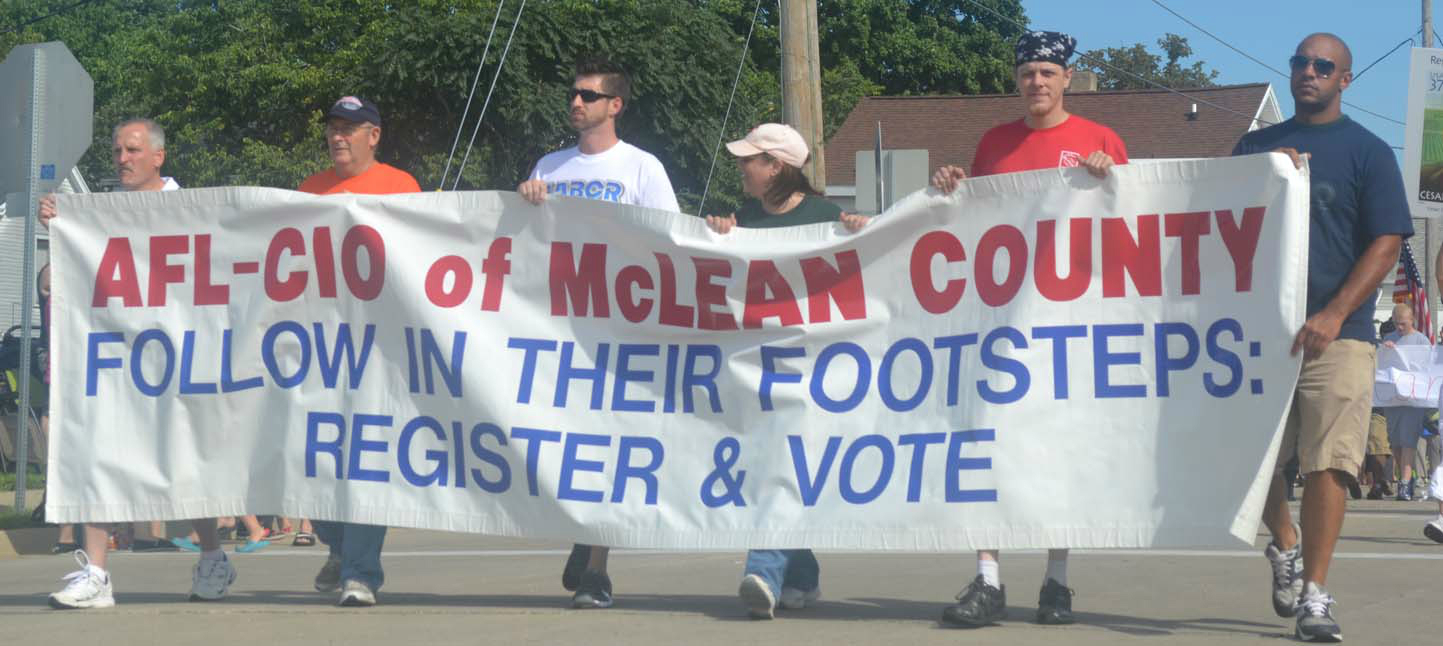
|
| Burying the many children who died in the Italian Hall tragedy, Dec. 24, 1913. |
|
“Take a trip with me to 1913, to Calumet, Michigan in the Copper Country.”
So begins Woody Guthrie’s song, “1913 Massacre,” which describes a tragedy that occurred in Calumet in 1913, in the upper peninsula of Michigan.
During a party in the Italian Hall that was for the copper miners and their children, someone yelled “Fire!” and caused a mass panic. There was no actual fire, but 73 people died, the majority of them children, in a massive human traffic jam and pile-up in the stairway when they tried to escape from what they thought was a fire. If anyone has wondered why the rule about not falsely shouting “Fire” in a crowded place exists, this story illustrates exactly why that rule is needed.
At the time of the party, the copper miners were having a strike that had started in July earlier that year, and the mine management wanted the strike to end without having to cooperate with the workers’ demands and needs. That Christmas Eve, the striking miners and their families held a party at the Italian Hall for their children.
An anti-union group called the Citizens’ Alliance was formed that was aligned with the mine management. It was a man from this group who raised the false call of “Fire” that night, according to the book Death’s Door: The Truth Behind Michigan’s Largest Mass Murder.
While the doors were not necessarily held shut by laughing thugs, as the song accuses, there were deputy sheriffs who blocked and beat people who tried to get back into the hall to find their families and friends, making it more difficult for rescue workers to help.
During the time of the tragedy, the local newspapers were controlled by the mine management, and thus were very biased in their reporting. They initially reported the tragedy as being an accident, because they didn’t want to admit that it had been the work of anyone aligned with the strike breakers.
However, later interviews with people who had witnessed and survived the tragedy revealed that a man from the Citizens Alliance had very likely been the one who called “Fire” into the building. Another famous controversy surrounding the tragedy is whether or not the doors to the Italian Hall swung open or inward. According to Death’s Door, this was because some of the pictures of the stairwell were shot at an angle that made it look like the inside doors swung inward, which could have caused people to pile up if they forgot which way to open the doors in the panic.
However, the human traffic jam was not necessarily positioned at the bottom of the steps, and was more likely to have been caused by a few people falling on the stairs, blocking the pathway and leading to others falling on top of them.
The strike ended in April of 1914, with the strikers having voted to return to work despite not being able to convince the mine management to consider their needs.
Thankfully, later laws in the 1930s and 1940s that guaranteed the right to form unions, but it was too late to help those who had died in the Italian Hall tragedy and others who suffered from the unfair practices of the mine management in Calumet.
This story illustrates not only what can happen in a mass panic, but also the hostile nature of many relations between workers and their managers that still occurs in many places today.
by Loretta Santejka
|



